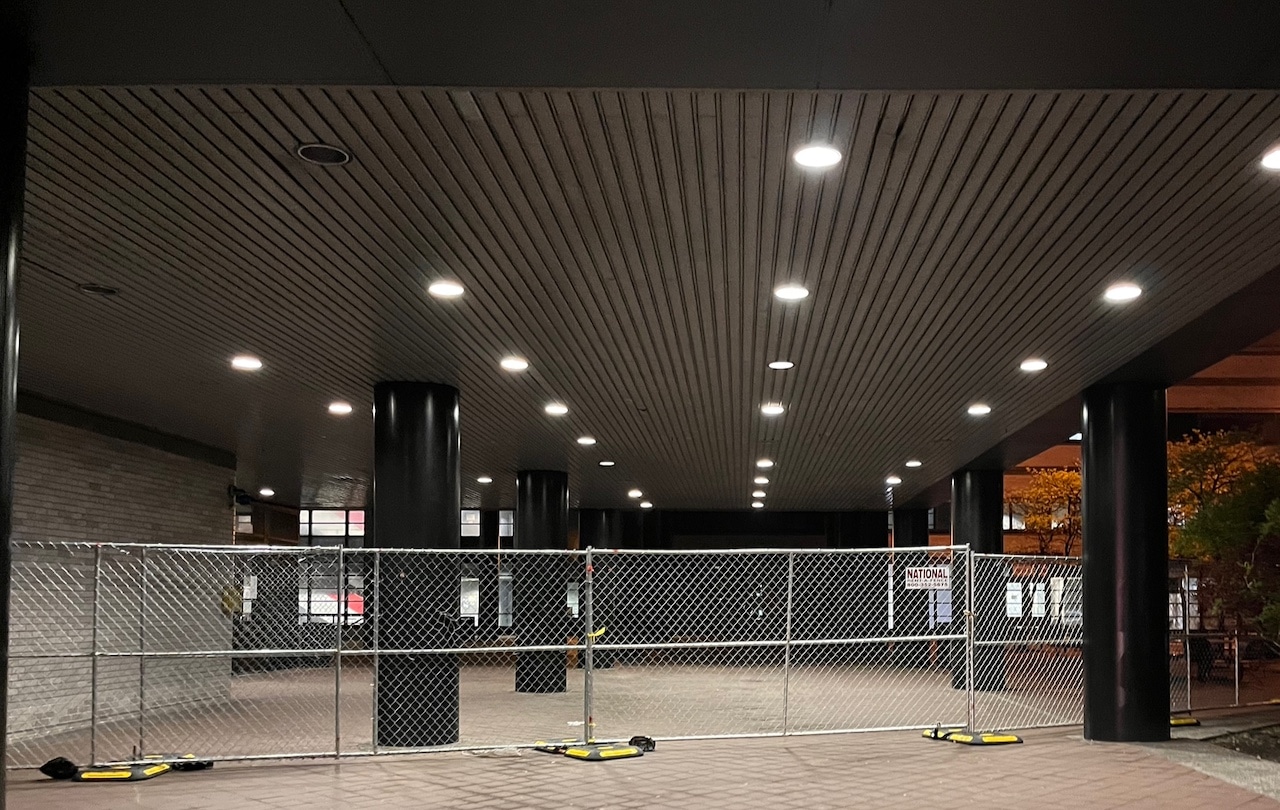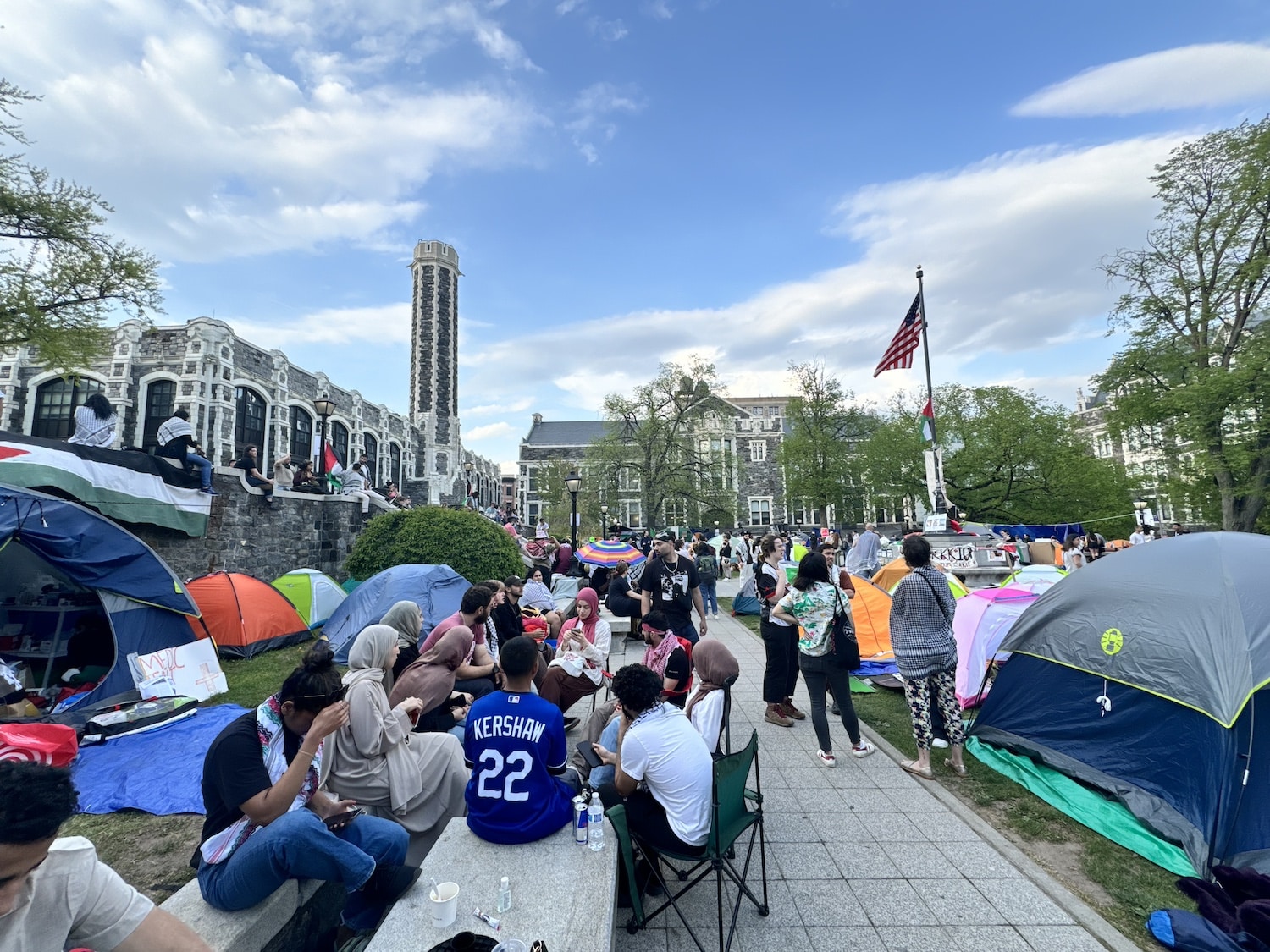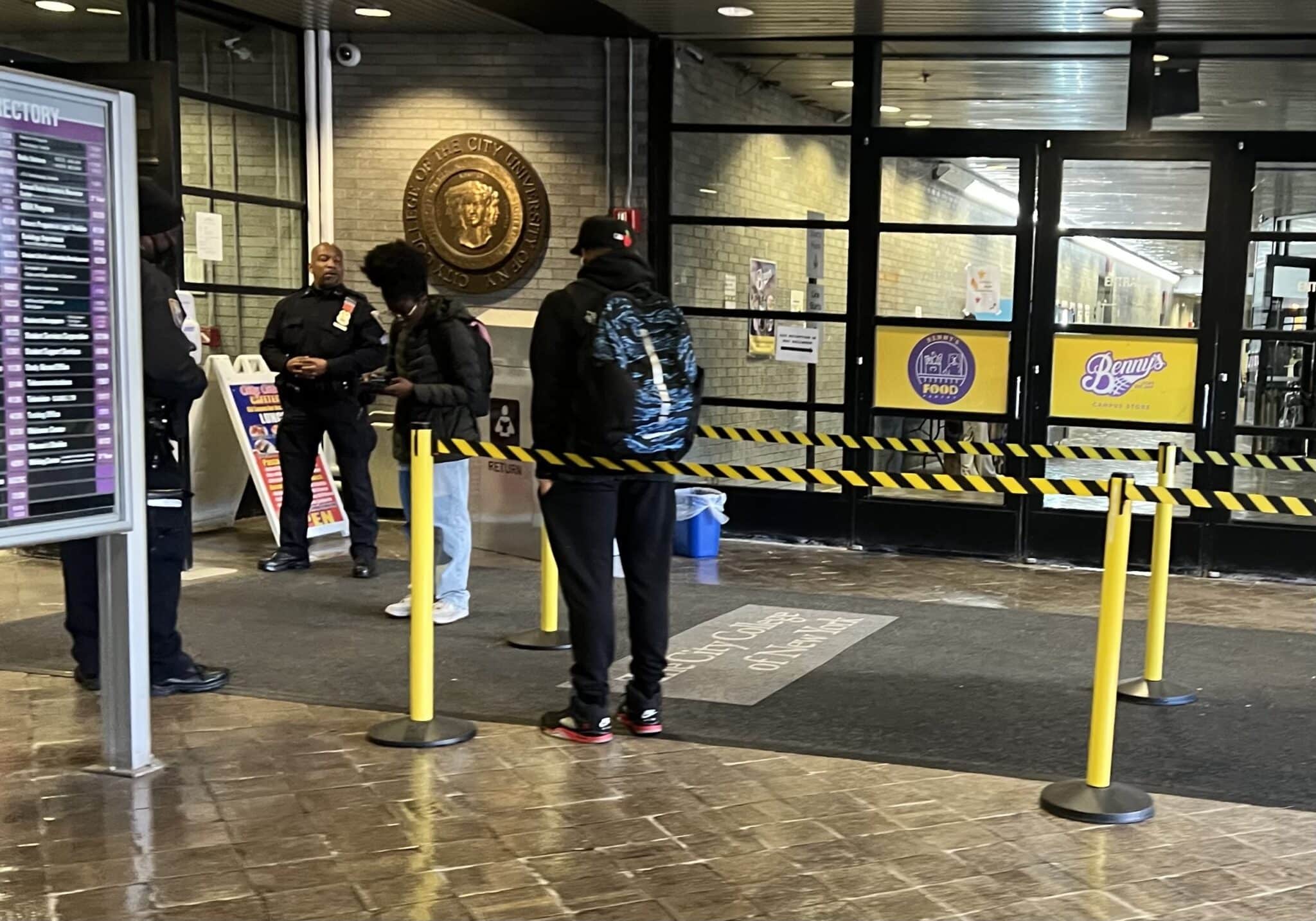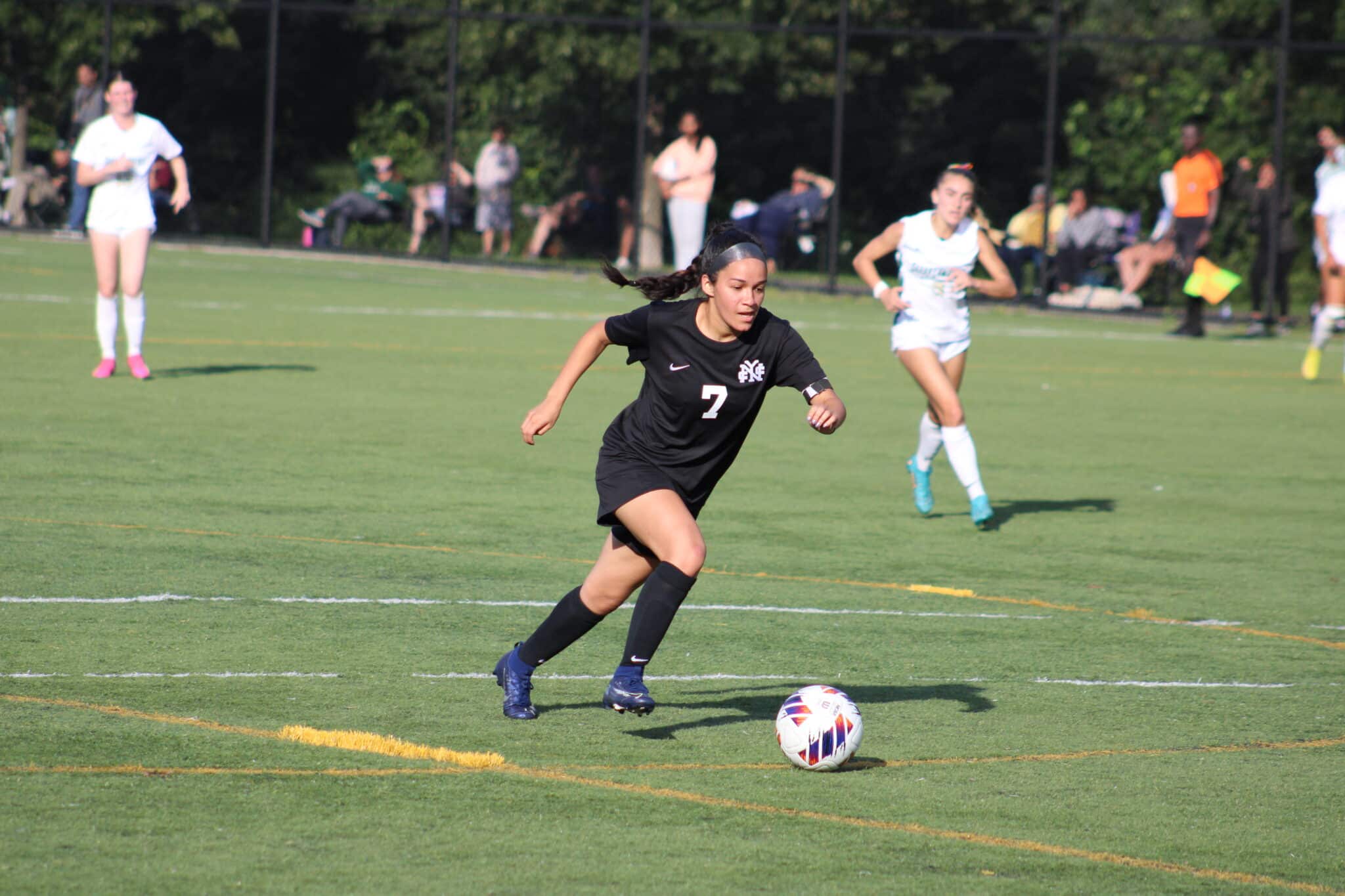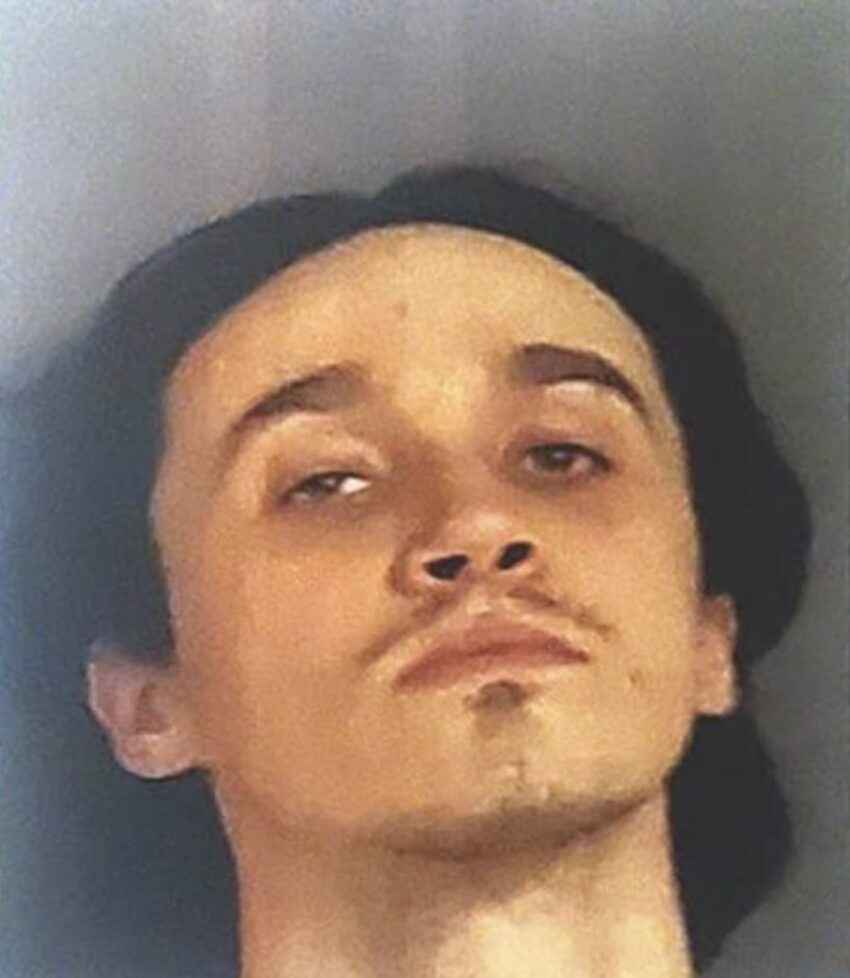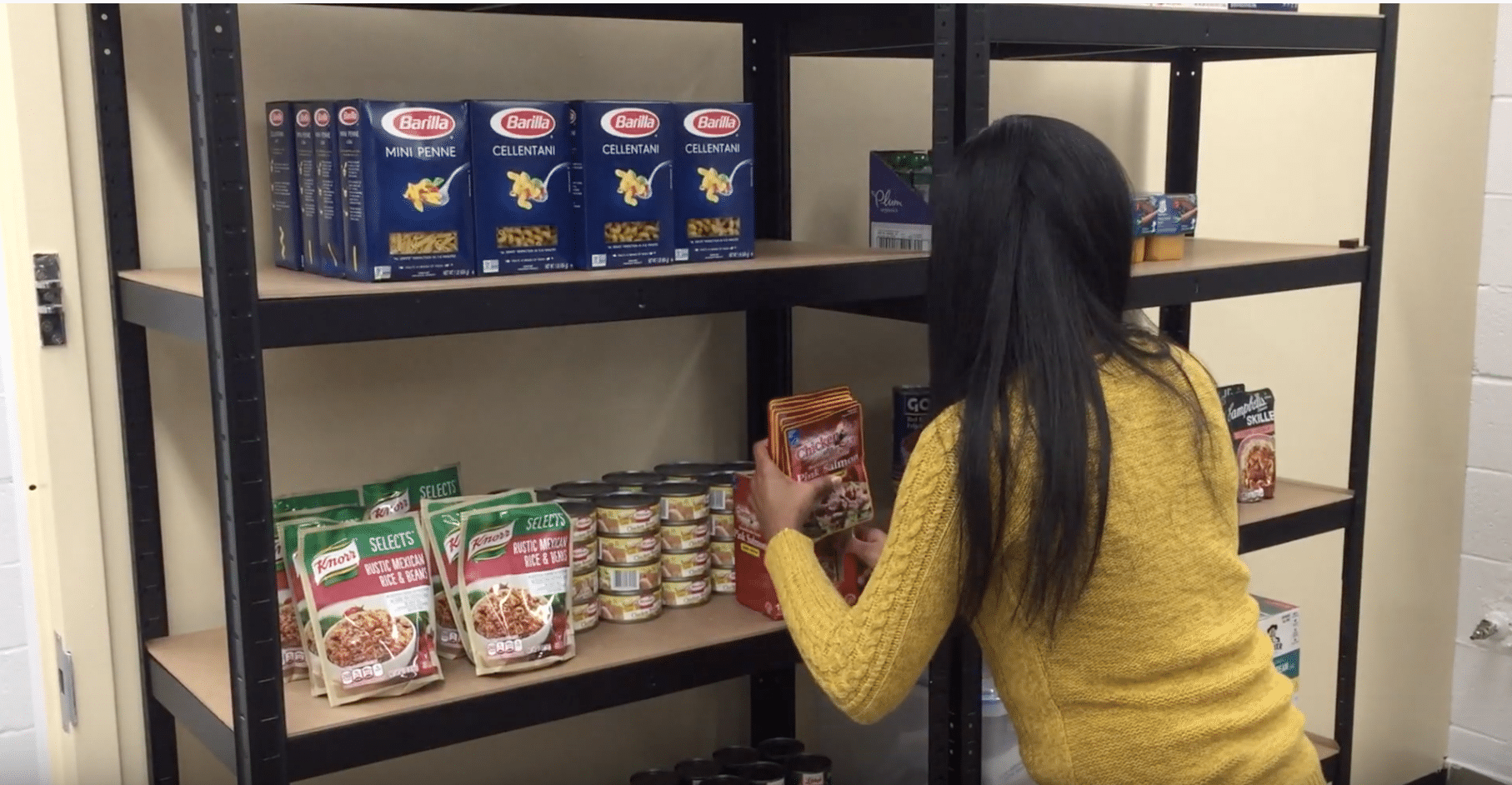CITY COLLEGE, May 4- Classes at the City College of New York (CCNY) have been online since President Vincent Boudreau sent the NYPD into campus to clear the CUNY Gaza Solidarity Encampment on April 30. And in an email sent to the college community around 6 p.m. Saturday, Provost Tony Liss announced they will continue to be online Monday.
“I expect that soon thereafter we will resume in-person classes,” he wrote. “I will endeavor to give everyone at least 24hr notice before returning to classes on campus.” He did not explain why the administration came to this decision.
Less than a month before commencement, students are adjusting to online learning and waiting to find out if they will see their professors and classmates in person again.
Meanwhile, protesters are furious over the arrests made and many in the campus community wonder if the situation had to end with injuries and arrests.
Pro-Palestine protesters organized the encampment in CCNY’s quad on April 25, and vowed to stay until CUNY Chancellor Matos Rodriguez met their demands, which centered around the university cutting academic and financial ties to Israel. But negotiations didn’t get far before the protesters were given notice they must disperse.
“[The administration] wanted to talk about the camp. We wanted to talk about the demands,” Hadeeqa Arzoo, a CCNY student and organizer of the encampment said Tuesday, before the NYPD arrived. “But we knew that, given who was at the table, our conversation was going to go in circles over and over again.”
Both the protesters and CUNY administration established negotiating teams. The protester’s team included two adjunct professors (one from Brooklyn College and one from John Jay College), a PhD student from the CUNY Graduate Center, and two undergraduate students (one from City College and one from Hunter College).
The administrators’s team included CCNY President Boudreau, Vice President Dee Dee Mozeleski, and Assistant Vice President of Student Affairs Ramon Dos Santos, along with CUNY’s vice chancellor for student affairs and chief financial officer.
“The chancellor, the person who is able to make a lot of these decisions and listen to our demands, was not present,” Arzoo said. “So we felt very neglected, very ignored. And therefore decided after that, we will not be negotiating until the chancellor is here.”
President Boudreau said that the Chancellor was too busy to meet with the protesters on the timeline they requested. “The first session we went, we talked for two hours. [The protester’s negotiating team] said that next time, they would like the next meeting to include the Chancellor. And we said, we would convey that,” he said. “And then, I think Sunday, they issued a statement saying they’ll no longer negotiate unless the chancellor goes to talk to them on Monday.”
The president says that the team of administrators were prepared to negotiate even though the chancellor couldn’t be there. “So that was their decision, not ours,” he added.
But at a press conference held May 1 by the organizers of the encampment at CCNY, and of the similar encampment at Columbia University, protesters said the universities negotiated in “bad faith.”
“The university gave us nothing more than bureaucracy, nothing more than proposals, nothing more than speculation that one day, maybe, they would consider divesting,” Sueda Polat, a member of the Columbia University Apartheid Divestment (CUAD) coalition, said. “Our students sang songs, saying that they will not be moved unless by force, knowing that they were being watched by the eyes of the children in Gaza who write our names on their tents, who say Columbia [University] and CUNY are protesting for them.”
President Boudreau did not specify to what extent, if any, the university planned to meet the protesters demands. He and CUNY Chancellor Matos Rodriquez said they made the decision to send the NYPD into campus and break up the encampment after protesters attempted to break into Shepard Hall and successfully got inside the Wille Administration Building.
President Boudreau made it clear that when the campus reopens, they will not allow another encampment.
“No, we won’t let them,” he said. “We never wanted the encampment. I always would have preferred that the protests would be similar to the protests we’ve had all year long and that we’ve allowed.”
When the campus reopens, President Boudreau said there will be more public safety officers, and more “eyes on the entrances to campus.” “We’re just not going to let people bring tents or lawn chairs or that kind of thing on campus,” he added.
Encampment organizers have not said if they plan to return.
This story was first published by The Paper.
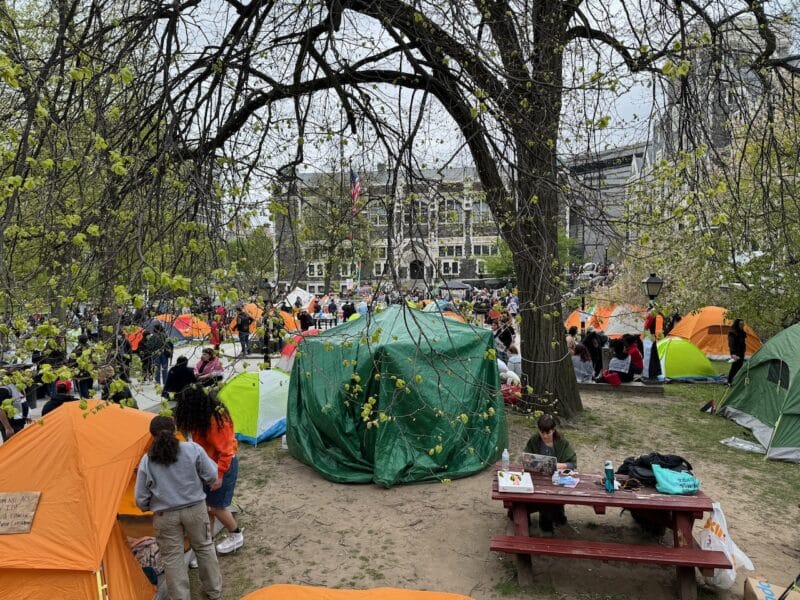
Tags: behind negotiations CCNY City College of New York classes remain online pro Palestinian protests
Series: Community
